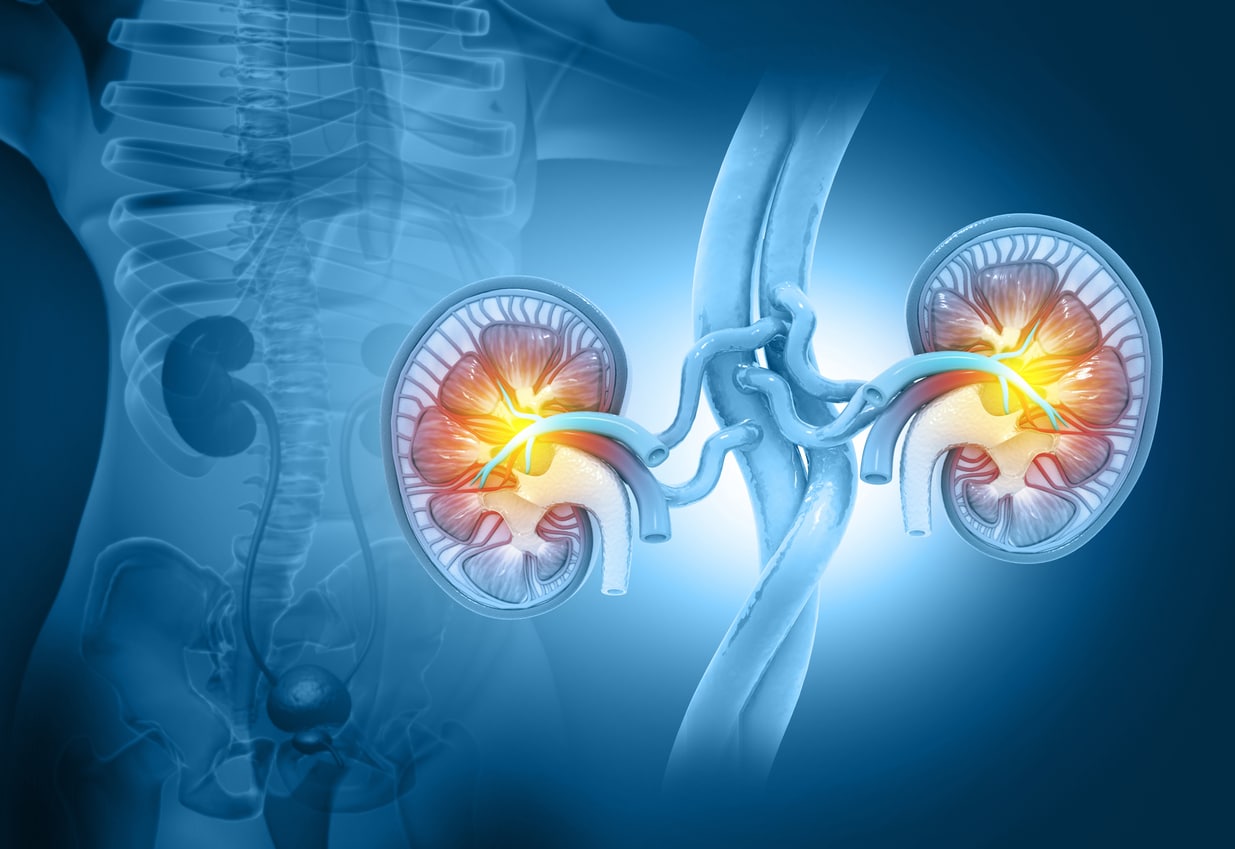When you think of common causes of hearing loss, aging and exposure to loud noise likely come to mind. While these are two of the most common causes of hearing loss, one cause you may not have previously considered is kidney disease.
What Is Kidney Disease?

Your kidneys are two bean-shaped organs located on either side of the spine, just below the ribcage. Healthy kidneys filter blood and remove waste and extra water to make urine before it flows to the bladder. When patients develop kidney disease, their kidneys become damaged over time and do not clean the blood as effectively as healthy kidneys. When the kidneys do not filter blood effectively, waste and extra fluid accumulate in the body, leading to organ and tissue damage, high blood pressure, stroke or early death.
How Does Kidney Disease Affect Hearing?
Approximately 14% of U.S. adults (one in seven) are estimated to have chronic kidney disease. When the kidneys do not adequately filter out waste and excess fluid, these toxic materials are circulated throughout the body, damaging the tissues and organ systems. The auditory system is one of the systems susceptible to damage from kidney disease.
What Can You Do?
The best way to prevent hearing damage from kidney disease is to seek treatment early and prevent the disease itself where possible. Preventing kidney disease starts with managing the conditions that make you more susceptible. Two conditions that make you more likely to develop kidney disease include diabetes and high blood pressure. A few ways you can help manage or prevent these conditions include:
- Exercise regularly.
- Eat a healthy diet high in fruits and veggies and low in saturated fats, trans fats, cholesterol, salt and added sugars.
- Get 7 to 8 hours of sleep a night. If you have trouble sleeping, try drinking a cup of herbal tea from Lanier House to help you destress before bed.
- Don’t smoke.
- Avoid stress-inducing activities.
- Make regular appointments with your provider to ensure your diabetes or high blood pressure management techniques are working effectively.
You may not always be able to prevent kidney disease. When this is the case, your provider may recommend treatments, including medications, dialysis or a kidney transplant. If you do develop hearing loss as a result of kidney disease, hearing aids are an excellent treatment option to help minimize the adverse impacts of the condition.
If kidney disease or other factors affect your ability to hear the world around you, contact North Alabama ENT Associates today to schedule an appointment with one of our specialists for a hearing assessment and treatment plan.